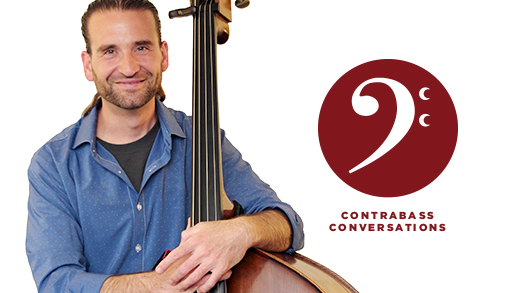
313: Tracy Rowell on sound, balance, and teaching
312: Chromatic Endpin Kickstarter
Update: The Chromatic Endpin is now available! Check it out here.
Emilio Guarino has just launched a Kicksarter campaign for his chromatic endpin. Support has been great so far, but clock is ticking, so be sure to check out the campaign and pre-order or pledge your support!
Check out Emilio’s full Contrabass Conversations interview if you haven’t–it was a great conversation!
Check out more about the endpin in this video:
https://www.youtube.com/watch?v=oFgwPA0gm30
311: Bernard O’Neill on arranging, teaching, and recording

Originally from Ireland, Bernard O’Neill has been a bassist, arranger, and educator for over 30 years. He works regularly with Sinead O’Connor and Rufus Wainwright, and he recently put out a project called Syriana: The Road to Damascus.
310: Sean Perrin on one year of podcasting

It was a ton of fun to sit down with Clarineat podcast host Sean Perrin! Sean is a fellow music podcaster and just hit his one-year anniversary of podcasting, and we got a chance to sit down and dig into what he has learned in the process.
309: Ted Botsford on auditioning, teaching, and tone research

Today’s episode features Ted Botsford. Ted is currently a bassist in the Seattle Symphony and just won a position in the Los Angeles Philharmonic. Ted played in the Oregon Symphony prior to joining the Seattle Symphony.
Ted studied with George Vance while growing up in the Washington, D.C. area and continued his studies with Paul Ellison in college.
- Prev Page...
- 1
- …
- 117
- 118
- 119
- 120
- 121
- …
- 168
- ...Next Page
